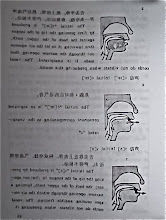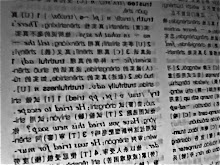King Charlemagne would call for a digestif.
Not that he wouldn't get it for himself, in fact, would so
prefer, but his servants insisted on it.
There was always the concern of
good form. That didn't govern him, we need to be sure,
but it seemed to put everyone else at ease. Plus, with the mess
of layoffs and questions about the definition of monarchy
and the economy, it was...easier.
So he gave in, for their peace of mind, really,
as when he settled on donning that cumbersome diadem only
when the French ambassadors showed up at court.
A few sips in, well, a few sips into his second,
Charlemagne would call for a third (let's be honest)
and a fourth—no, this one's not for him—
which, his veteran servants knew, and the really sharp
ones remembered to include in the training of the new hires,
meant that the King was really putting in a call
for Alcuin. Charlemagne pretended he didn't know
(he's the father of Europe, after all)
but in the buttery and bottlery
the servants joked that Old King Carol must be constipated
again. Constipated, we take it, because Alcuin had stumped
him again with one of his puzzles. And thus the...digestif.
Well, Alcuin humored Charlemagne by pretending not to know,
which, it must go without saying, Charlemagne himself was
aware. What is it, my Lord? A hearty laugh would ensue
and with a manly smack on the back, Charlemagne:
You know, you always were my greatest acquisition.
More laughter, and some wisecracks about heresy.
In these moments Alcuin didn't miss
the winters of York as much. Maybe the warmth
of the digestif loosened him up a little more but
Master Flaccus felt the King took after his own heart
because they both understood that poetry and theology
were really no different from puzzles.
II.
Alcuin, was, shall we say, fond of subtleties and
contradictions. In the marginalia of his parchments
of Vergil's Eclogues—it was difficult, indeed, to decipher,
through the oat bran and milk residue,
given how worked over they are in palimpsests.
For example, he was obsessed for a time with
lines 37-41, Eclogue 8. The mala and malus, particularly,
although from what we can make of his annotations
this passage he believed key to the whole of the work:
Once with your mother, in our orchard hedge,
I saw you, a little girl, plucking dewy apples—
I was your guide—I scarcely had entered
my twelfth year, barely could I reach
the fragile boughs. I looked, and I was lost.
The pun, see, is mala (neuter plural, very important)
"apples" and malus (masculine singular, also important) "evil,"
though the best translation of the latter must have tortured
him. The garden scene, 12 years of age, apples and evil:
for a man who wrote, for God's sake, De fide Trinitas,
these things simply must leap out at you.
Contemporary scholars spill more ink on the issue of
the palimpsests, though. The prevailing theory goes
that some sacerdotal disapprobation convinced Alcuin
to scratch out the apple musings, as if he was onto too much,
though more likely it undermined some minor footnote
in a certain archbishopric press release
against the Saxon paganism, especially in the wake
of the Basques' obliteration of the troops
in the Pass of Roncesvalles. It does deserve mention,
however, that there is a fairly novel hypothesis gaining some
currency: that Alcuin, a man keen on forms, viewed
the palimpsest, as form, namely, as puzzle. Thus wittingly
tampered with his commentaries—a puzzle
for posterity to decode. Or at least tinker with. Either way,
it's a genius tactic to land some kind of immortality.



No comments:
Post a Comment